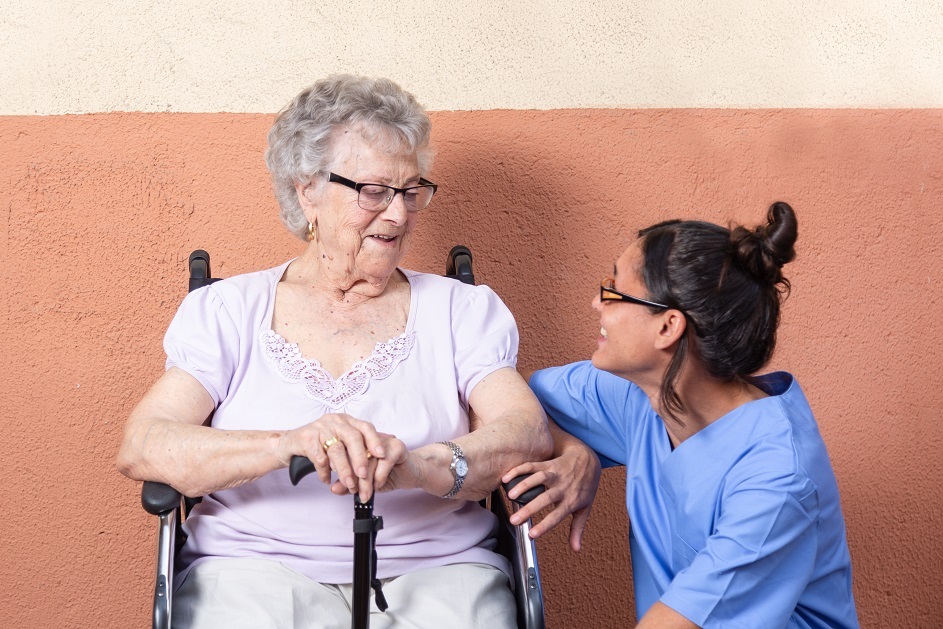
What It Takes To Be A Caregiver
Caregivers need a special combination of compassion, patience, reliability, flexibility and communication skills. Each day as a caregiver looks a little bit different and includes helping people with daily activities like bathing, dressing, grocery shopping, cleaning and more.
Benefits Of Becoming A Caregiver
- Variety: There are many factors that make every day different.
- Flexibility: You can work a schedule that fits into your lifestyle.
- Health insurance: Many employers offer health insurance and other benefits to caregivers.
- Personal fulfillment: You’ll leave work knowing you made a difference in someone’s life.
- Quick training: Depending on what type of professional caregiver you’d like to be, you can get trained in as quick as 75 hours and an exam!*

*Each type of caregiver requires a different amount of training. Check out the different types of professional caregivers to learn more about specific requirements.
Work Settings For Caregivers
Professional caregivers can choose from a wide range of work settings in which to serve clients with long-term care needs. Some work settings tend to have more of certain types of professional caregivers than others. Below, find brief descriptions of each type of work setting.

Adult family homes are neighborhood homes where professional caregivers assist two to six residents. Professional caregivers in adult family homes work with just a few clients every day. Work hours tend to be consistent and regular in an adult family home.
Primary Caregivers: Nursing Assistant Certified and Home Care Aide Certified

Caregivers in in-home settings provide personal care within a client’s own home. Caregivers usually work with one client at a time. This position may offer more flexibility in scheduling than other settings.
Primary Caregivers: Home Care Aide Certified and family members

Skilled nursing facilities provide 24/7 nursing care for residents who have needs for rehabilitation, skilled nursing and personal care needs. Professional caregivers in skilled nursing facilities work with many clients, and clients may move in and out of the facility frequently. Work hours tend to be consistent and regular in a skilled nursing facility.
Primary Caregivers: Nursing Assistant Certified

Assisted living facilities are licensed to serve seven or more residents. Professional caregivers in assisted living facilities may work with a few to many clients every day. Work hours tend to be consistent and regular in an assisted living facility.
Primary Caregivers: Home Care Aide Certified, Nursing Assistant Certified
Take the Quiz
Think That Caregiving May Be a Good Fit For You? Let's find out!

